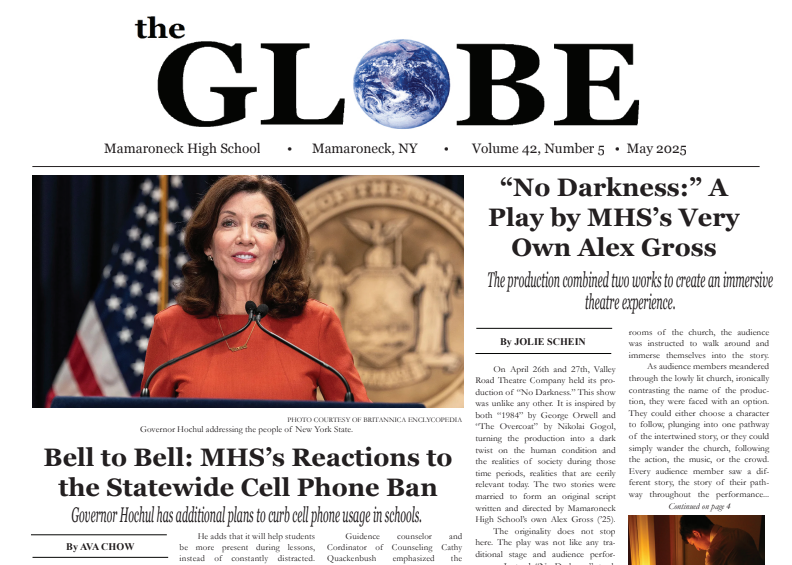Does College “Prestige” Really Exist?
Photo courtesy of Dan Kitwood on Getty Images
Students celebrate major milestone to college.
June 28, 2022
Elite American schools have long been seen as the golden ticket to a prosperous, successful future. This belief is highly prevalent in the Mamaroneck High School (MHS) community, where students are often faced with overbearing expectations to be accepted to a “good” college. But does this college “prestige” really exist? And if it does, is it worth it? The majority of the Globe staff feels that the value of this “prestige” depends on the student.
Prestigious universities have long been labeled “feeder schools”. Feeder schools have the reputation of giving students advantages by providing them with inside views on how to navigate their desired fields of work. Graduates from the schools are very often “fed” to top workspaces, allowing them to quickly obtain positions of influence. In addition to the opportunities that these schools bring after university, they also provide a multitude of networking opportunities.
The Globe staff is split on whether the “prestige” that comes with the elite school truly has any worth. Some staff members feel that though the policies of these feeder schools are not necessarily “moral,” the resources that a student gains from such a school are, in fact, priceless and offer opportunities that could not be earned in other places. Since these schools are so much more expensive, they tend to have greater networks of resources, including the ability to attract top researchers in certain fields and allow students to work with highly successive employers of an industry. One staff member points out that though success is not solely limited to those who attend the high-ranked universities (nor is it guaranteed by the attendance of one of these prestigious schools), the students attending those schools do have it somewhat “easier” when attempting to find future jobs as they are provided numerous connections throughout their years at the school.
Yet, while some of the Globe staff see admission to feeder schools as a positive aspiration, not everyone agrees. The resources that are offered by a school do not necessarily outweigh the future success of the student, and sometimes the financial repercussions are not necessarily worth the title or “bragging rights”. Some members of the Globe feel that often, students are pressured to strive for these perfect schools in order to prove something to their family, friends, or even themselves. To have the ability to insert the name of a well known school in their social media bio, in order to give a good impression. These members of the Globe staff strongly believe that the ranking of schools do not determine their later success. It is rather their character and how hard they are willing to work. It is easy to fall into the trap that these nationally ranked universities are the “best” option for a student. In addition to this, the Globe staff feels that these schools are not necessarily worth the struggle due to the financial repercussions of attending an elite school. Students can not completely rely on the need-blind option when applying to elite universities with such high tuition. In other words, it may be that elite universities admit more of the type of students whose skills and preexisting networks already guarantee them success and glowing statistics.
The Globe staff concludes that the value of elite colleges varies for each student. While a school’s name does not determine one’s future success, when considering certain majors or socio-economic backgrounds, a school’s name may be influential in determining one’s future. Ultimately, the most important factor that will determine a student’s success is not where they go to school, but their level of commitment and willingness to learn and what they will do with the education they earn.






